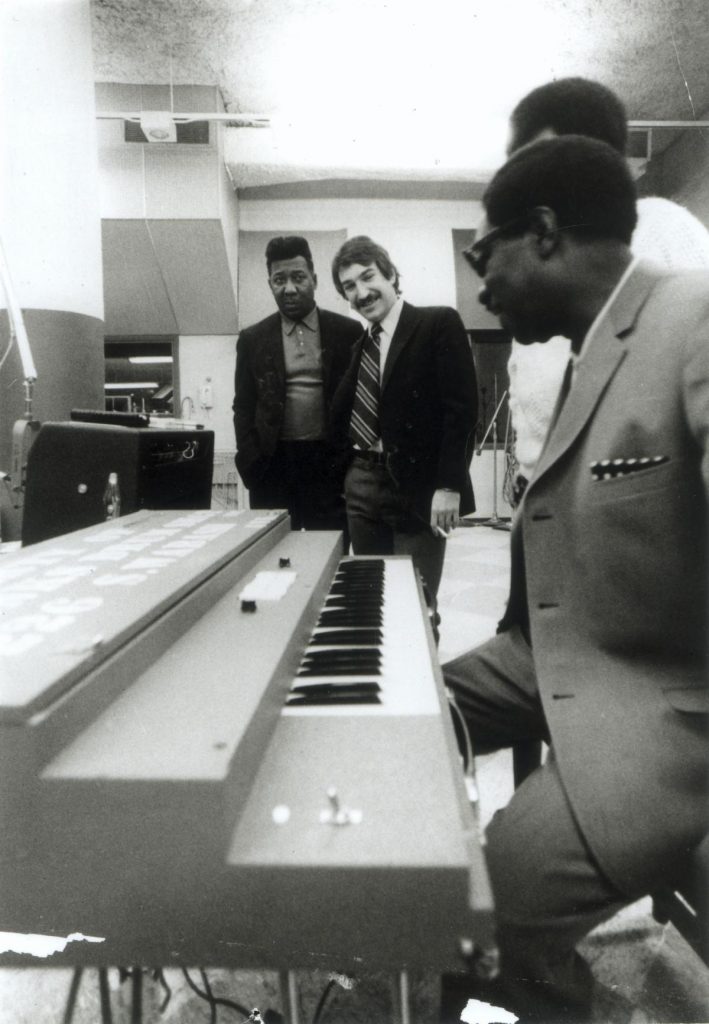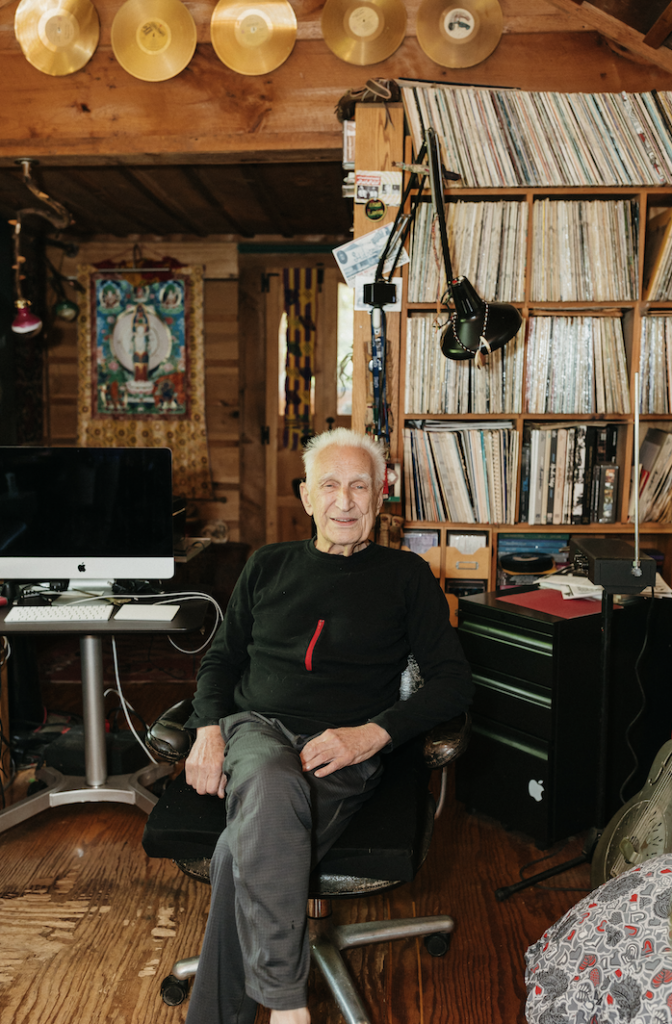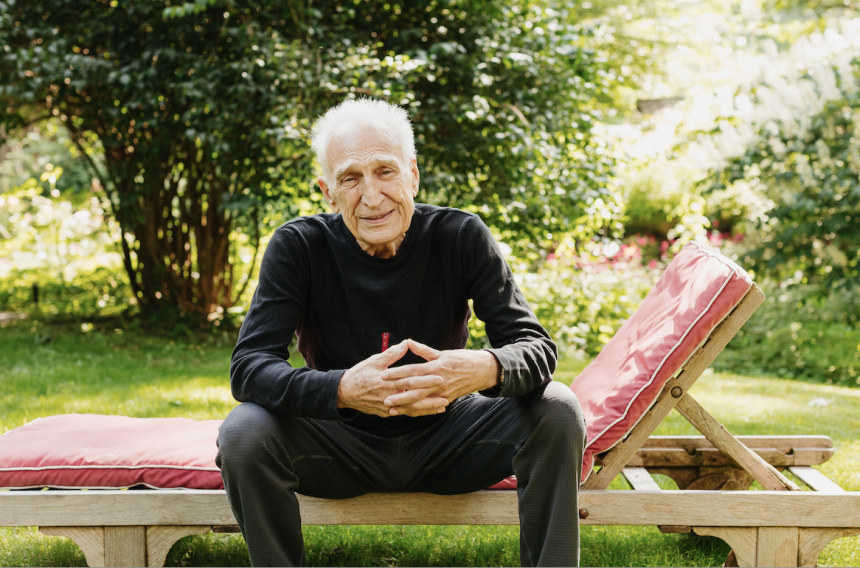Read Marshall Chess Creates New Moves – Part One here.
“I had father/son problems with my father,” says Marshall Chess, “but never in the way he produced records or what he created. Or my uncle (Phil Chess). If anything, I thought my uncle was equally important, but my problems with my father were more father/son relationships than anything to do with music.”
Keith Richards once asked Marshall Chess where his father Leonard got his nickname the Foot Stomper. “I said they were doing a Muddy Waters song called ‘He Moves Me,’ and he wasn’t getting it from the drummer. So, dad goes in the studio. He was a producer (but) he’d never played an instrument. He sits down and starts banging on the bass drum to show him what he wanted: bam, bam, bam. So, they started calling him the Foot Stomper. In all the records that followed he always had a strong foot.”
Marshall grew up rubbing shoulders with blues royalty at his dad’s record label, Chess Records. “I was much closer to Muddy Waters than I was to any other Chess artists. He was really my father’s friend, and so was Chuck Berry. Those were the two that came to the house. They were the only two I ever saw at the kitchen table with my dad, and Chuck would even sleep there. I knew Muddy Waters the best. I’d been to his house, 4339 Indian Ave. I even knew the address. He had the rehearsal in the basement. I met (his wife) Geneva. I had eaten her fried chicken.

“Muddy Waters played the Newport Jazz Festival, and we put out Muddy Waters at Newport in 1960. Six months later my uncle said, ‘You know it’s the weirdest shit. We’re getting big orders, 1000. That was big in that era. Muddy’s album blossomed. We researched it and found it was played to this great white audience at the Newport Festival, and it was white college kids who, like, discovered the blues.
“Chuck Berry had this friendship with my father, and he called me the white grandson. He wrote me these two or three lines to give a note to this girl. He wrote it down. I don’t remember (what they said, but) I told my son you could buy a Ferrari with those notes.
“I spoke at Chuck Berry’s funeral. An old black man comes up to me. ‘Mr. Chess, I want you to know I was with Chuck when we came up to Chicago in ’55. The cut made me, and I want you to know it was your dad that taught Chuck Berry that beat and loud guitar.’ I’d never heard that before. I was blown away. So, I said to Keith (Richards), ‘My dad would have just loved your foot.”
Chuck eventually signed with Mercury Records. It was a million-dollar deal. That’s a lot of money, There’s no fucking way I would pay him that, but I told him it wouldn’t work, and my dad said, ‘I think Chuck Berry realized it. He had one hit after he left Chess with ‘My Dingaling.’
“I think Chuck realized that, and then when Keith Richards did that movie with Chuck Berry, Hail Hail, Rock and Roll, they had great fights, because Keith understood the magic of Chuck Berry more than Chuck. Chuck didn’t know his own magic. Muddy did, but Chuck did not.
“That’s why he always had fuckup bands. I used to argue with him. After prison, I was his road manager, right? He never had the magic of a band that would play with him on the road. He never had the magic of a band that rocks together. He didn’t get that. He had his own thing, man.”
There’s a popular myth that Marshall’s dad gave a new Cadillac to his most successful artists every year. Not so, says his son. “Dad never gave a Cadillac for royalties. All anybody got for royalties was money, checks during the early period. Muddy Waters wanted a Cadillac. The only way he could get a Cadillac was if my father got one and made the payments, and it was deducted from his royalties. That’s how it started. They couldn’t get it on their own. When we did it, the artist wanted it.
“No black people in that era had bank accounts. On every block in a ghetto were currency exchanges. We would give artists checks. We had to have books, and they would have to go to the currency exchange, and they could deal with the local ones. They knew it was ok, that it was real, and they would take 20%. That was the big deal.
“We never gave cars unless the artist wanted it in lieu of royalties deducted from the future because they couldn’t get enough cash to buy it from cash, and they couldn’t go to the bank to get it from bank payment. So, we did that, not 100 times but probably 15 or 10.

“I only remember all blues artists liking one thing more (than the music), and it was money. Anything you could do with them that would them make some money they were happy with. I did that record Electric Mud that the blues critics crucified me, but I’m gonna swear to you it sold more than any Muddy Waters album in history at that time. And Muddy was thrilled about it until the press started attacking it, the whole blues press.
But it’s still out there now, and we still get weird letters now from people who love it. It’s strange. I don’t know. The markets change. I always felt that the problem with it was that it was institutionalized too much, talked about too much on an intellectual level. It was never meant to be. It was a musical feeling, heart and soul, not about thinking.
“That’s really what it was about; music to soothe your soul if you had a psychological problem, and it would soothe your soul by letting you know many people had the same problem.
“Many people had their women messing with them. So, that’s the way I always approached it, and I always felt it’s quite intellectualized, a lot by the white blues market, but I’m thrilled it exists. What I love is that the blues has become a real American art form that’s really appreciated on an intellectual scale, and I do travel internationally a lot for my publishing business. I’m amazed at the growth, places like Spain, Brazil, where you couldn’t sell 80 albums eight or 10 years ago, and now they sell thousands.









